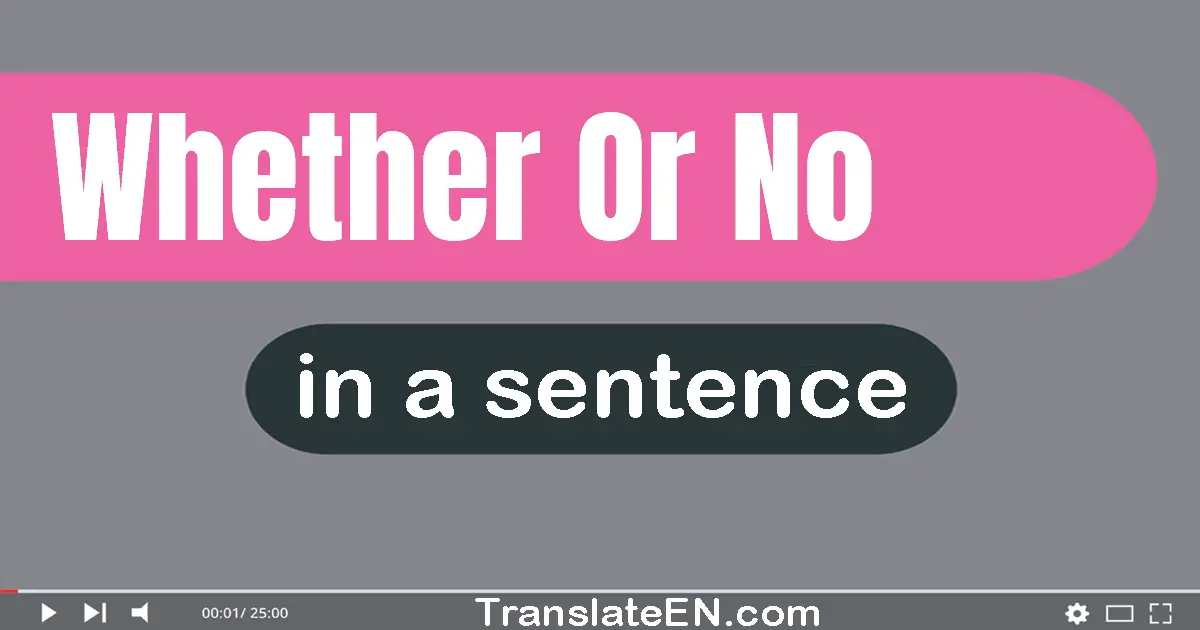Whether Or No in a sentence
Synonym: regardless.
Meaning: Whether or no means regardless of circumstances or conditions.

Whether Or No meaning
Whether or not is a commonly used phrase in the English language that is used to express uncertainty or to present two possible options. It is important to understand how to use this phrase correctly in a sentence to convey your intended meaning. In this article, we will provide you with tips on how to use the phrase "whether or not" effectively.
1. Understand the meaning: Before using the phrase "whether or not," it is crucial to grasp its meaning. It is used to introduce a choice between two possibilities or to express doubt about a particular situation. It implies that there are two options or outcomes that could occur.
2. Use it in conditional sentences: "Whether or not" is often used in conditional sentences to present two possible outcomes.
For example, "Whether or not it rains, we will still go for a walk." In this sentence, the phrase introduces the possibility of rain but emphasizes that the walk will happen regardless of the weather.
3. Use it to express doubt: "Whether or not" can also be used to express uncertainty or doubt about a particular situation. For instance, "I'm not sure whether or not I will attend the party." In this example, the phrase indicates that the speaker is unsure about their attendance.
4. Use it to present options: The phrase "whether or not" can be used to present two options or choices.
For example, "I haven't decided whether or not to take the job offer." Here, the phrase introduces the decision-making process and highlights that the speaker is considering both possibilities.
5. Maintain correct word order: When using "whether or not" in a sentence, it is important to maintain the correct word order. The phrase is typically followed by a subject and a verb. For instance, "Whether or not she will come to the party is uncertain." In this sentence, the phrase is followed by the subject "she" and the verb "will come."
6. Avoid redundancy: It is essential to avoid redundancy when using the phrase "whether or not." Since the phrase already implies two options, it is unnecessary to include additional words that convey the same meaning.
For example, saying "I'm not sure whether or not or not I will attend the party" is redundant. Instead, simply say, "I'm not sure whether I will attend the party."
7. Use appropriate punctuation: When using "whether or not" in a sentence, it is important to use appropriate punctuation. Typically, a comma is placed after the phrase when it is used at the beginning of a sentence.
For example, "Whether or not it snows, we will still have a great time." In this sentence, a comma is used to separate the introductory phrase from the rest of the sentence.
In conclusion, the phrase "whether or not" is a versatile tool in the English language that allows you to express uncertainty, present options, or introduce conditional statements. By understanding its meaning and following the tips provided in this article, you can effectively incorporate this phrase into your writing and speech, enhancing your communication skills.
The word usage examples above have been gathered from various sources to reflect current and historical usage of the word Whether Or No. They do not represent the opinions of TranslateEN.com.
